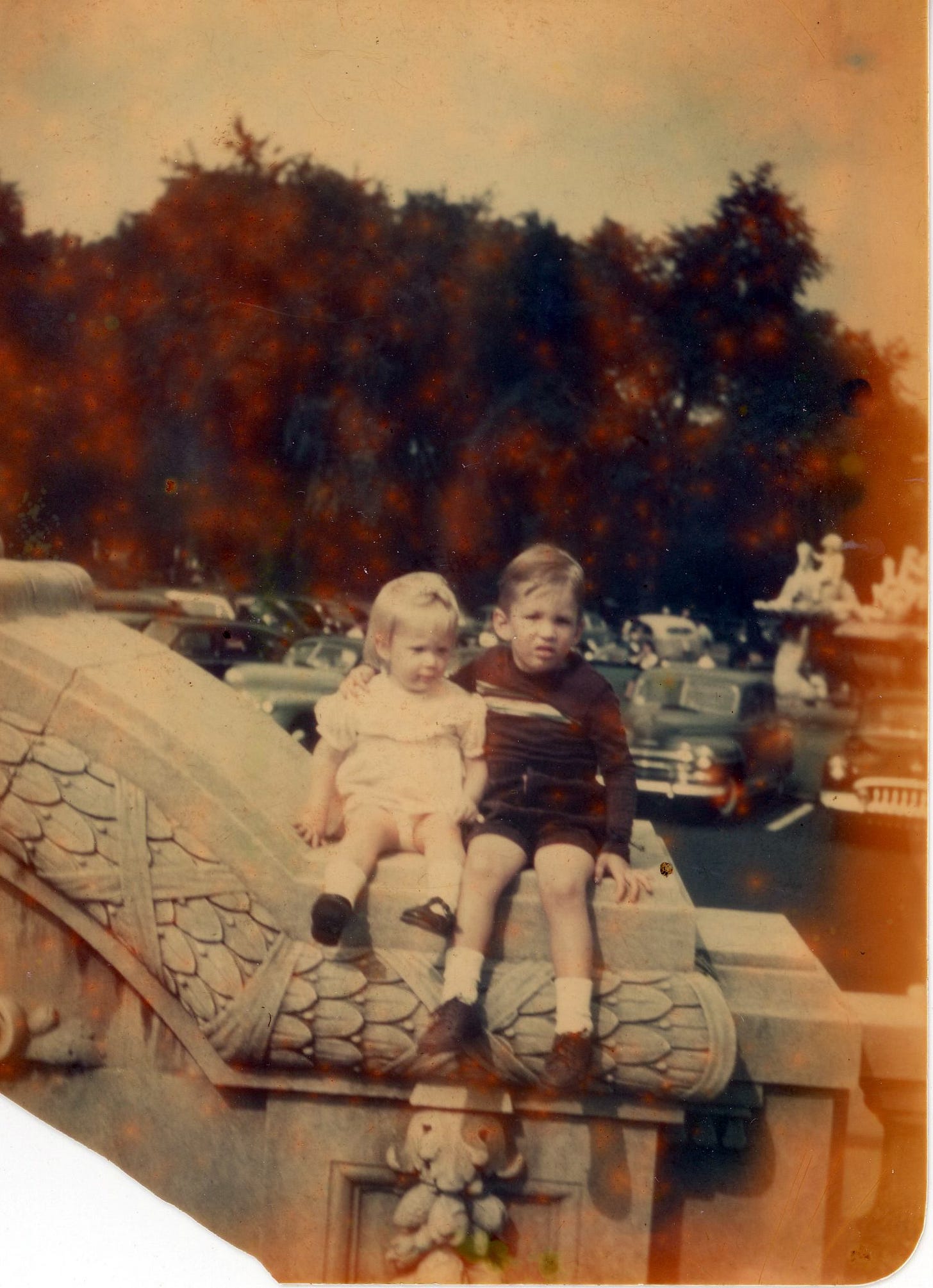Is “Risque” just French for Risky Business?
Some forty-odd years ago, I played the risky game of dating a married woman.
A slight correction: she was married, but definitely separated—by the width of an entire continent. Which was not quite enough to make her comfortable. And it was risky, if not for the reasons I would have expected.
Popular opinion warns that what makes such liaisons dangerous are husbands—especially husbands who possess firearms and tempers to match. The Married Lady had such a husband, but he was safely out of range, on the opposite coast. The unexpected risk came from an unlikely source.
My mother.
Here’s the story: The Married Lady and her three-and-a-half-year-old son were visiting me in the city, one weekend, and we decided to go to the Bronx Zoo. Since my parents lived not very far north of the zoo, they met us there. My family had been visiting that zoo since I was, myself, about three years old; it was a familiar—and family-friendly—place.
I see, now, that the choice was not without risk.
My sister and me, Bronx Zoo, around 1949. It seems I knew that it was a dangerous place…
Right after meeting this young woman and her child, my mother took me aside—not far from where several of the larger carnivores were pacing in expectation of raw meat—and asked, sotto voce, “Why don’t you marry her?” Frankly, as an avowed bachelor, the thought had never occurred to me. I could have said almost anything to defuse the situation, but instead I just blurted, “I would… except that she’s already married.”
My mother held rather traditional views on the morals of matrimony, so I don’t know how that exchange affected her, at the time. But I do know that it affected me.
The idea had been planted.
I thought of little else for a year or so—until, the day when the mailman handed The Married Lady an official-looking envelope. Inside, she found a certificate assuring her that the long-awaited divorce from her former husband had been granted.
I knew she had been looking forward to becoming une femme divorcée, so I said nothing—for a full week—giving her the chance to enjoy her new-found freedom. We were going to go out for dinner, to celebrate my birthday, where I planned to pop-the-proverbial-question.
About halfway between the entrée and dessert, The Newly-unmarried Lady told me how happy she was—as a divorced woman—and that she never wanted to get married again. Flustered, and stammering, I admitted, “That’s too bad…” then, catching my breath, “because I was planning on asking you to do just that, this evening.”
I can’t remember exactly what she said to that almost-a-proposal—but the gist of it was, “Yes.”
A few days later, on the phone with her son—who had been spending a few pre-kindergarten months, out west, with his pistol-packin’ paternal parent—she casually mentioned, “I’m thinking of marrying Gary…” and added, “How do you feel about that?”
“I’m not marrying him,” was the five-year-old’s response. Not asserting a value judgment, mind you, just stating a fact.
But he was wrong; we are—all three of us—a very married family.
The risk turned out not to be mine—it was hers. As in any marriage, there are some qualities in each other that we admire, and others we can only barely tolerate. Since I was an active participant in raising The Re-married Lady’s child, he acquired far-too-many of the characteristics that his mother least appreciates in me.
The upside is that we now have at least some anecdotal evidence in answer to the hoary “nature-versus-nurture” question—and, so far, it appears that DNA has not been the determining factor in his development. We’ll have to see how he turns out; if need be, I’m flexible enough to draw a different conclusion from my observations—and more-than-willing to place any blame a continent away.
Paid subscribers get access to complete editions of two of my novellas. Noirvella is a modern story of revenge, told in the style of film noir. Unbelievable is a kind of rom-com that forms around a pompous guy who is conceited, misinformed, and undeservedly successful. Both books are sold by Amazon, but paid subscribers get to read them for free.
Also, substack pages (older than eight months) automatically slip behind a paywall—so only paid subscribers can read them. If you’re interested in reading any of them, you can subscribe (giving you free access to them), or buy them in book form should you prefer the feel of a physical book.
Meanwhile, it is easy to become a paying subscriber (just like supporting your favorite NPR station). It’s entirely optional, and—even if you choose not to do so—you’ll still get my regular substack posts—and I’ll still be happy to have you as a reader.




